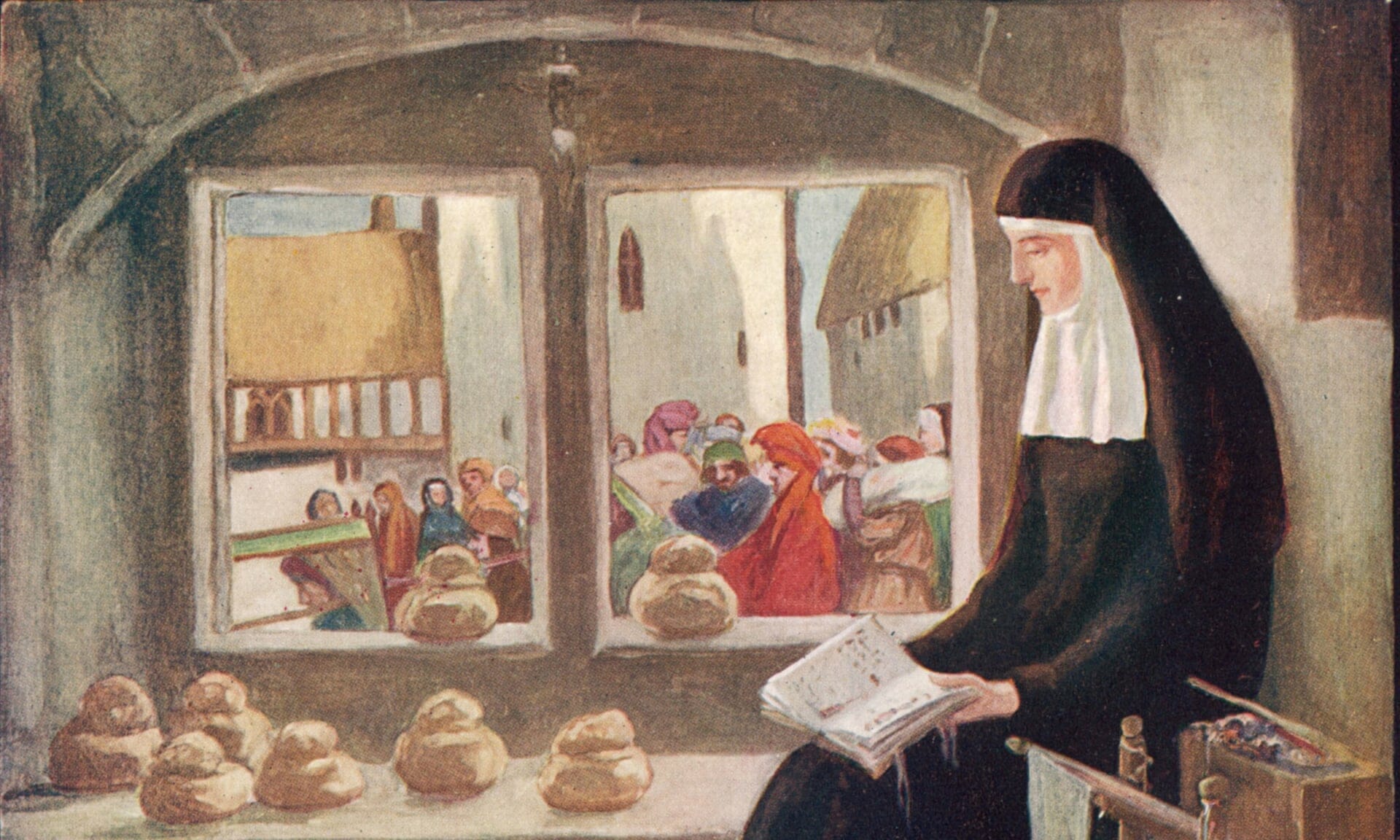
Julian of Norwich by Stephen Reid, 1912. Photograph by Alamy.
All shall be well: Julian of Norwich’s conviction, borne out of the suffering of the Black Death, can sustain us during the time of COVID-19

Rev. Margaret Marcuson
May 21, 2020
A long-dead medieval mystic offers perspective on this time of global pandemic and economic upheaval. Why? Julian of Norwich, the 14th-century English mystic, lived through the time of the Black Death, in addition to famine and war which affected her own city of Norwich.
As a young woman she experienced a series of visions. She reports Jesus telling her, “All shall be well, and all shall be well, and all manner of things shall be well.”
In addition, as a spiritual hermit, she knew about “self-isolation” and being alone. She chose this way of life. She had a window in her cell through which she could talk to people who came to her for spiritual counsel. We might look at this as a medieval version of the virtual conversation.
Julian’s conviction that God’s message was that “all shall be well,” was not a shallow, everything-will-turn-out faith. It didn’t dismiss reality. It didn’t pretend. She had seen suffering, over many years. When she was a child, the Black Death swept through her community. That devastating plague is estimated to have killed one-third of the population of England, and half of the population of Norwich. The plague returned yet again several times during her lifetime. It was not a short-term crisis. Her faith came out of a deep awareness of God’s presence through all the pain and suffering of life.
Meg Barnhouse in her lovely song, “All Shall Be Well,” imagines Julian saying: “No one does not know about sorrow and no one does not know about pain…and about hunger…and about shame… and about loneliness…and about disease.” These are part of the human condition. Still she affirms, “All will be well, and all will be well, and all manner of things will be well.”
As we move through the worst of the COVID-19 pandemic and into discernment of what’s next, Julian of Norwich’s conviction that “all shall be well” can sustain us. This is not a dismissal of suffering, but a deep awareness of God’s presence through suffering.
As we move through the worst of the COVID-19 pandemic and into discernment of what’s next, that conviction that “all shall be well” can sustain us. This is not a dismissal of suffering, but a deep awareness of God’s presence through suffering.
You may wonder:
What’s going to happen to my income? My pension?
What’s going to happen to our institutions? Our children?
Will people come back to church? Will they keep giving (or start up again)?
What about the millions who have lost jobs? What about all those who are ill, and grieving the loss of loved ones?
What will happen with the virus in the long term?
And the answer is, we don’t know yet. In this moment of unknowing, we can practice coming back to the words of Julian, “All will be well.” We don’t know how and we don’t know when, but we can know. And living with that sense of awareness of God’s presence and care can change our experience of this uncertain time and our view of the unknowable future.
Here’s a prayer of Julian’s, which I offer to you as you walk through these days:
“God, of your goodness give me yourself for you are sufficient for me. I cannot properly ask anything less, to be worthy of you. If I were to ask less, I should always be in want. In you alone do I have all.” (George Appleton, The Oxford Book of Prayer, p. 66).
The Rev. Margaret Marcuson helps ministers do their work without wearing out or burning out, through ministry coaching, presentations and online resources.
The views expressed are those of the author and not necessarily those of American Baptist Home Mission Societies.


